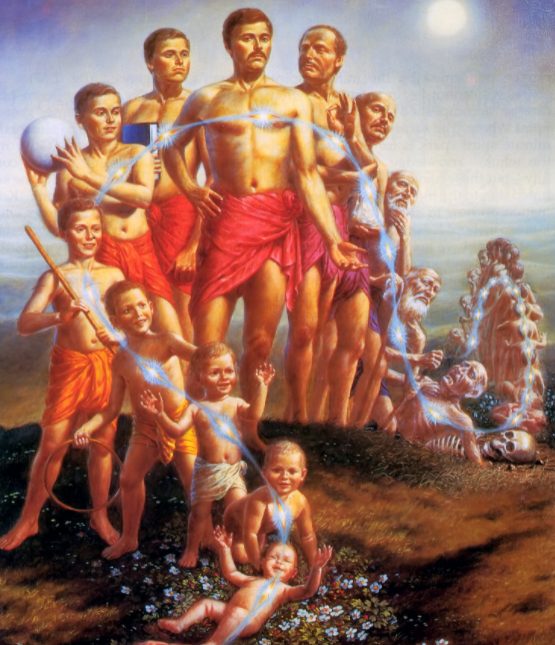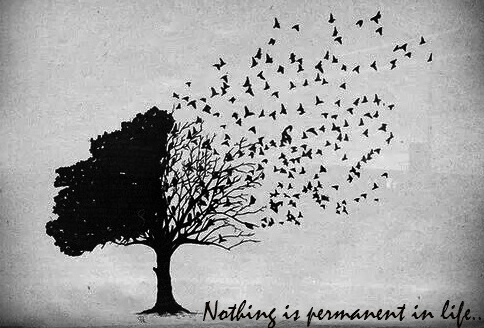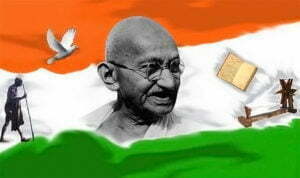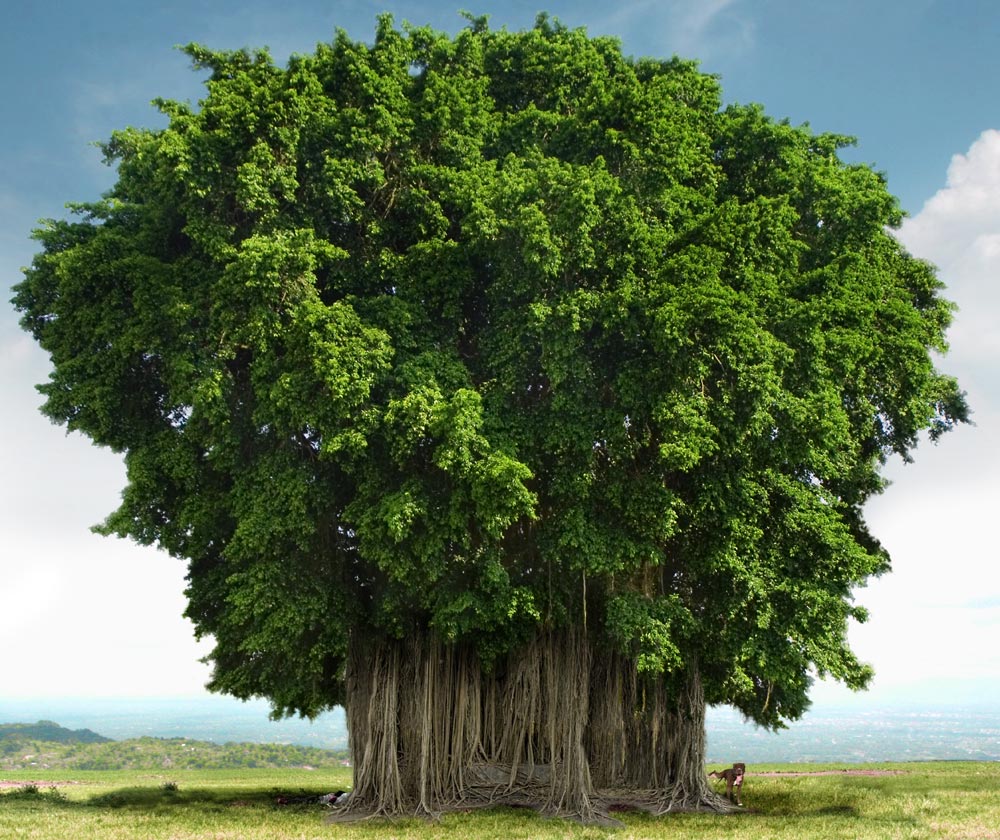The Shrimad Bhagavad Gita, also known as the Gita, is a 700-verse Hindu scripture from the second half of the first millennium BCE. It is a part of the epic Mahabharata and is regarded as one of Hinduism’s holy writings. All Hindus, as well as many non-Hindus from other countries, preach the Bhagavad Geeta as the ultimate sacred literature. Furthermore, devotees of Lord Krishna abide by this sacred book in their daily lives.
The Bhagavad Gita is a synthesis of Hindu concepts concerning dharma, theistic bhakti, and the yogic ideals of moksha. The text incorporates principles from the Samkhya-Yoga philosophy into the Bhakti, Jna, Karma, and Rja yogas. We will look at some of these principles, depicted as shlokas in the sections below.
What exactly is the Bhagavad Gita?

The Gita is the dialogue between Pandava prince Arjuna, and his adviser and charioteer Krishna. Arjuna is overcome with moral difficulty and agony at the start of the Dharma Yuddha due to the war between Pandavas and Kauravas. He worries if he should renounce these acts of violence against his family and seeks Krishna’s advice, the replies to which form the Bhagavad Gita. The Krishna–Arjuna discussions encompass a wide range of spiritual topics, including ethical quandaries and philosophical difficulties that extend far beyond the war.
Significance of the Bhagavad Gita
The Bhagavad Gita is a metaphysical treatise about “the nature of things”. It speaks about humanity, our place in it, as well as the steps we must take to achieve enlightenment and happiness. In addition, it is concerned with the paths to wisdom and humanity’s relationship with the ultimate reality.
The Bhagavad Gita is an important spiritual text since it establishes a person’s right to ask questions about everything. It is also significant since it links to the “Perennial Philosophy”. German philosopher Leibniz used this phrase to identify basic recurring concepts that are the foundation of all philosophies, particularly esoteric patterns in religious-philosophical thought. The objective of this philosophy is for humans to understand who they truly are and what their life’s purpose is.
Some Important Bhagavad Gita Shlokas
Shloka on How to Work
karmaṇy-evādhikāras te mā phaleṣhu kadāchana
mā karma-phala-hetur bhūr mā te saṅgo ’stvakarmaṇi
The core philosophy is to focus on your actions rather than the outcomes.
Translation:
You have the right to do your assigned work, but you do not have the right to the fruits of your labour. Do not believe yourself to be the cause of the outcomes of your actions, nor should you be connected to inactivity.
Meaning:
This is arguably one of the most well-known Bhagavad Gita shlokas.
It provides profound insight into the correct spirit of work and is frequently cited whenever the subject of “Karm Yog” is bought up. The verse contains four directions on the science of work:
- Do your job, but don’t worry about the outcome.
- The results of your activities are not for your pleasure.
- Even if you are employed, give up the pride of doer-ship.
- Do not be attached to inaction.
A Shloka on the Eternal Life of a Soul
na jāyate mriyate vā kadāchin
nāyaṁ bhūtvā bhavitā vā na bhūyaḥ
ajo nityaḥ śhāśhvato ’yaṁ purāṇo
na hanyate hanyamāne śharīre
The core philosophy is to not be afraid of your life because the soul never dies.

Translation:
The soul is never born, nor does it ever die, and thus, it never ceases to exist. The soul is without birth, immortal, and ageless. Therefore, although the body perishes, the soul does not.
Meaning:
We must overcome our fear of mortality, as it can sometimes prevent us from taking risks or doing what we want to achieve in life. This ideal also aids in the discovery of one’s inner self and the discovery of one’s true purpose in life.
Shloka on Living in Denial about Our True Self
kacchidetachhrutam paartha tvayaikagrena chetasaa
kacchidajnyaanasammohaha pranashtaste dhananjaya
The core philosophy is that we live in denial about our true nature.
Translation:
Have you heard this with a clear mind, O Paartha? O Dhananjaya, has your delusion of ignorance been destroyed?
Meaning:
The Upanishads, the sections of the Vedas dealing with the eternal essence, seek to reveal the true nature of the self. All humans are unbeknown to their true nature. This ignorance affects everyone. Just like someone with multiple personality disorder requires treatment to learn who they truly are, all of us require a trained teacher to transmit the knowledge of the Upanishads to us in order to regain an understanding of ourselves
A Shloka that States that Nothing is Permanent
mātrā-sparśhās tu kaunteya śhītoṣhṇa-sukha-duḥkha-dāḥ
āgamāpāyino ’nityās tans-titikṣhasva bhārata
The core philosophy states that nothing in this life is permanent. Humans must learn to tolerate and move on.

Translation:
The contact between the senses and the sense objects gives rise to transient perceptions of bliss and distress, O Kunti’s son. These are not permanent and change with the seasons, much like the transition from winter to summer. O Bharat descendent, you must learn to bear the changes without being bothered.
Meaning:
This shloka states that nothing in this world is permanent. In nature, seasons come and go. Similarly, both pain and pleasure are fleeting. Tough times do not last long. After a particular period of time, the terrible phase passes. Learn to endure these changes while remaining unaffected by them.
Shloka about the Negative Consequences of Anger
krodhād bhavati sammohaḥ sammohāt smṛiti-vibhramaḥ
smṛiti-bhranśhād buddhi-nāśho buddhi-nāśhāt praṇaśhyati
The core philosophy revolves around anger’s negative consequences.
Translation:
Anger causes a clouding of judgement, which leads to confusion. When one’s memory is muddled, one’s intellect is ruined, and when one’s intellect is ruined, one is ruined.
Meaning:
When a person is angry, he lacks the ability to evaluate what is right and wrong. As a result, he undermines the strength of his mind. A person cannot do anything in life without intellect and may perish in future.
Final Thoughts
The Bhagavad Gita contains all essential principles a human needs to incorporate in order to live life well. In a nutshell, most shlokas ask you to learn to be happy. When you depart this planet, you move on to another realm of consciousness. If you haven’t found happiness here, you’re unlikely to find it elsewhere.
Share with your friends





